
Midnight Club: Street Racing is a 2000 racing video game developed by Angel Studios and published by Rockstar Games. The game focuses on competitive street racing and the import scene. The game was released for the PlayStation 2 and Game Boy Advance platforms, the former being a launch title for the platform. It is the first game in Midnight Club franchise, followed by Midnight Club II.

4x4 Evo is a video game developed by Terminal Reality for the Windows, Macintosh, Sega Dreamcast, and PlayStation 2 platforms. It is one of the first console games to have cross-platform online play where Dreamcast, Macintosh, and Windows versions of the game appear online at the same time. The game can use maps created by users to download onto a hard drive as well as a Dreamcast VMU. All versions of the game are similar in quality and gameplay although the online systems feature a mode to customize the players' own truck and use it online. The game is still online-capable on all systems except for PlayStation 2. This was Terminal Reality's only video game to be released for the Dreamcast.

Moto Racer, mislabeled as Moto Racer Gold, is an arcade style motorcycle racing game developed by Delphine Software International and published by Electronic Arts for Microsoft Windows and PlayStation. The game was originally to be published by BMG Interactive, but after BMG closed down its U.S. operations it sold the publication rights to Electronic Arts. Critics hailed the game as the first outstanding arcade-style racer to appear on PC, and the PlayStation version in turn was called a strong conversion in reviews.
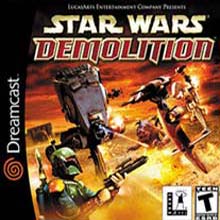
Star Wars: Demolition is a vehicular combat game set in the Star Wars universe created by Luxoflux and LucasArts using the Vigilante 8 game engine. The premise of the game is that the Galactic Empire have banned Jabba the Hutt's podraces, so Jabba creates a more life-threatening vehicular combat contest.

Need for Speed: Porsche Unleashed, released as Need for Speed: Porsche 2000 in Europe and Need for Speed: Porsche in Latin America and Germany, is a racing video game released in 2000. It is the fifth installment in the Need for Speed series. Unlike other NFS titles, Porsche Unleashed centers on racing Porsche sports cars, with models ranging from years 1950 to 2000.
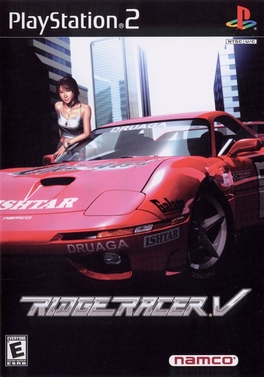
Ridge Racer V is a 2000 racing game developed and published by Namco for the PlayStation 2, as a launch game for that platform. It is the fifth title of the Ridge Racer series succeeding Ridge Racer Type 4 and was followed by Ridge Racer 6 in 2005. The game received a home-to-arcade port named Ridge Racer V: Arcade Battle.
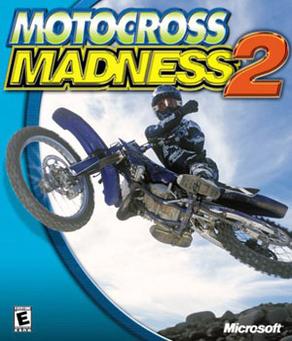
Motocross Madness 2 is a motocross racing video game that was developed by Rainbow Studios and published by Microsoft Games.
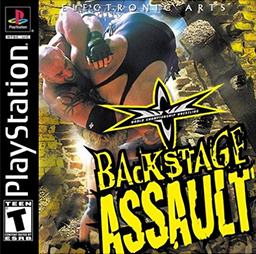
WCW Backstage Assault is a professional wrestling video game by Electronic Arts (EA). It was the final World Championship Wrestling (WCW) game released before the World Wrestling Federation (WWF) purchased the company's assets three months later. Backstage Assault features commentary by Tony Schiavone and Bobby "The Brain" Heenan. The game is distinguished by the fact that all gameplay takes place outside of a standard wrestling ring. This approach was poorly received, and the game sold only 200,000 copies.
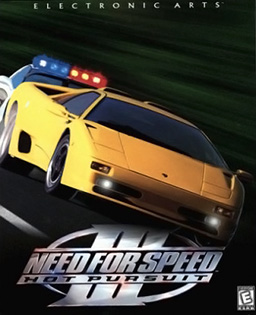
Need for Speed III: Hot Pursuit is a 1998 racing video game developed for PlayStation by EA Canada and Microsoft Windows by EA Seattle, and published by Electronic Arts. It is the third major installment in the Need for Speed franchise, incorporating police pursuits as a major part of gameplay. Hot Pursuit remains focused on racing using exotic sports cars, but features races that primarily take place in locations within North America, including varied settings and climates. Police AI is improved over the first game, utilizing several tactics to stop both the player and opponent. The PlayStation version was released on March 25, 1998, while the Windows version was released on October 12 the same year. The game received critical success, with praise for its graphics and customization options. It received a direct sequel in 2002 and a reboot in 2010.
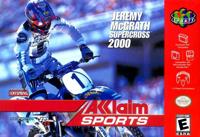
Jeremy McGrath Supercross 2000 is a motocross racing video game developed by Acclaim Studios Salt Lake City and published by Acclaim Entertainment under their Acclaim Sports label for Nintendo 64, Game Boy Color, PlayStation and Dreamcast. It features eight stadium tracks, eight outdoor tracks, and an option for players to create their own custom tracks. In addition to having a racing game mode, players could perform dirt bike tricks in a stunt mode.

Test Drive 6 is a racing video game developed by Pitbull Syndicate for PlayStation, Microsoft Windows and Dreamcast. In the United States the game was published by Infogrames North America, while in Europe the game was published by Cryo Interactive. The game featured 37 licensed cars, plus four police car variants. As a first for the series, cars from General Motors are not playable in this game, instead they appear as traffic cars. The soundtrack featured industrial rock and techno music from artists such as Fear Factory, Lunatic Calm and Cirrus.
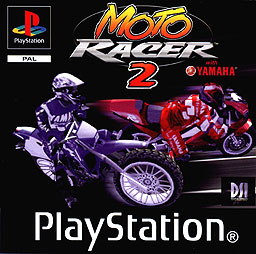
Moto Racer 2 is a motocross racing game developed by Delphine and published by Electronic Arts for PlayStation and Microsoft Windows. It is part of the Moto Racer series, and is the sequel to Moto Racer.

Moto Racer Advance is a motocross racing game developed by Adeline Software International, produced by Delphine Software International and published by Ubisoft for the Game Boy Advance. It was released in 2002 in PAL regions on October 4 and in North America on December 4. It is part of the Moto Racer series and was the last game to be developed by Adeline Software and also the last with any involvement from Delphine Software.

Moto Racer 3 is an arcade style motorcycle racing game developed by Delphine Software International for Microsoft Windows. It is part of the Moto Racer series and is the sequel to Moto Racer 2.

Superbike 2001 is a motorcycle racing video game developed by Milestone srl, published by Electronic Arts (EA), and released in 2000 for Microsoft Windows. It is part of EA's Superbike video game series.

MotoGP is the first of Namco's 5 game series for PlayStation, with 1 to 4 on PS2 and 5 'MotoGP' on PSP. It is based on the arcade game 500GP. There is no mention of what season it represents on the box but by the inclusion of the Muz 500 bike and the Paul Ricard track it can be deduced that at least contains some of the 1999 season - albeit with a much reduced bike/team/rider/track list. Later games in the series went on to fill out the gaps and became more of a true representation of the season/s they covered. This first installment is also notable for the inclusion of Klonoa, the titular character of another Namco series, who appears as a playable guest character.
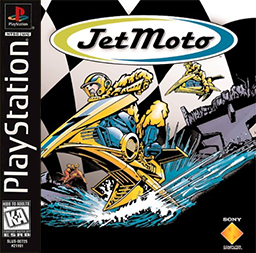
Jet Moto is a 1996 racing video game developed by SingleTrac and published by Sony Computer Entertainment for the PlayStation video game console and PC. The PlayStation version was released in North America on October 31, 1996; in 1997 for Europe in February and Japan on August 7. The PC version was released on November 13, 1997. Jet Moto was made available for the PlayStation Portable and PlayStation 3 via the PlayStation Network in February 2007. Developers chose fictional hovering bikes instead of wheeled motorcycles initially to resolve performance concerns. Other performance concerns led the team to develop two different physics systems—one for the player, and one for the 19 computer racers.

TT Superbikes Real Road Racing is a 2005 motorcycle simulation racing video game developed by Jester Interactive exclusively for the PlayStation 2 gaming console. The game was self–published by Jester in Europe, with Valcon Games and Taito handling publishing in North America and Japan, respectively. In North America, the game is licensed under Suzuki, an automobile manufacturer.
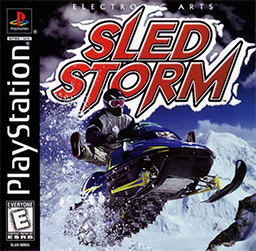
Sled Storm is a snowmobile racing video game published and developed by Electronic Arts. It gained critical acclaim due to its original concept of being one of the first snowmobile racing titles.
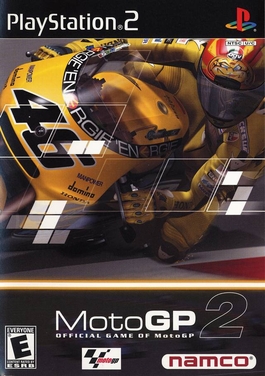
MotoGP 2 is a 2001 racing video game developed and published by Namco for the PlayStation 2. It is an officially licensed MotoGP game. It is a sequel to MotoGP (2000). It was followed by MotoGP 3 in 2003.





















